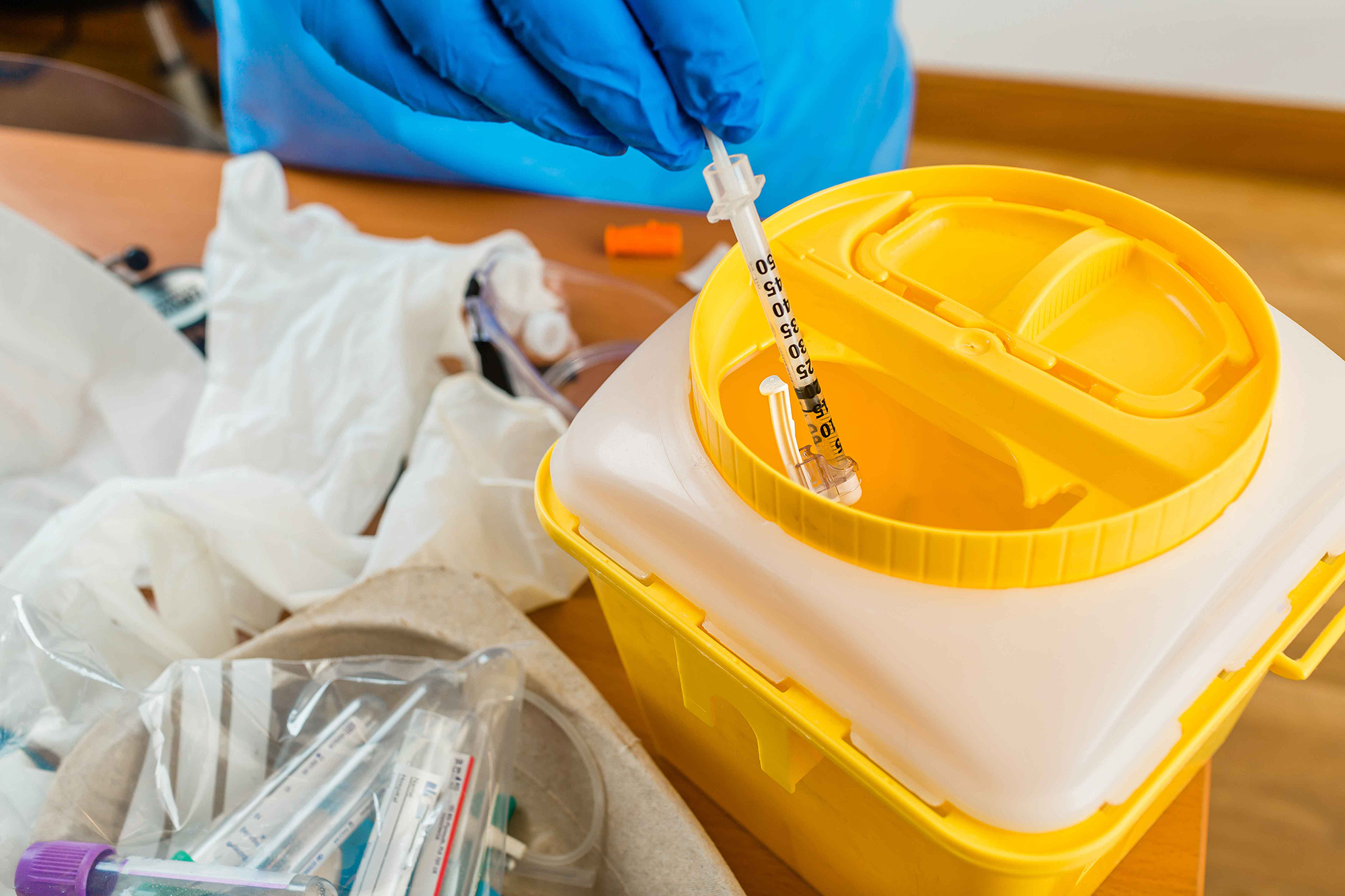Accountable Solutions: Comprehending Medical Waste Disposal Provider
In the realm of healthcare, the appropriate disposal of clinical waste is an important aspect that requires mindful consideration. As healthcare centers generate various types of waste that call for specific handling, recognizing the subtleties of clinical waste disposal services is paramount.
Significance of Appropriate Clinical Garbage Disposal
Appropriate medical waste disposal is important in maintaining a safe and hygienic atmosphere within healthcare facilities. In medical care setups, various kinds of waste are produced daily, including transmittable materials, sharps, expired drugs, and chemical compounds.

Sorts Of Medical Waste
Within medical care centers, a diverse variety of waste materials identified as medical waste is created, each needing specific handling and disposal techniques. Clinical waste can be classified into a number of kinds based on its features and prospective risks. Transmittable waste, such as utilized societies, swabs, and needles, positions a substantial threat of spreading out infections and must be very carefully taken care of to avoid any kind of prospective damage. Contaminated materials consists of chemicals, drugs, and certain materials that may be poisonous or reactive. These products call for specialized disposal techniques to lessen ecological impact and make sure security. Pathological waste, that includes cells, organs, and body parts, requires appropriate disposal to appreciate the dignity of the deceased and prevent any biohazards. Finally, pharmaceutical waste, like run out drugs and radiation treatment medicines, must be gotten rid of properly to avoid misuse or environmental contamination. Comprehending the numerous sorts of clinical waste is critical for healthcare facilities to execute effective waste management strategies and safeguard public health and the setting (Medical Waste Disposal Services).
Rules and Compliance
Medical care centers need to stick to rigorous guidelines relating to the handling and disposal of clinical waste to make sure conformity with legal requirements and guard public health. These guidelines are established to stop the spread of infections, protect the environment, and keep the safety of medical care employees and the public. Different governing bodies, such as the Environmental Protection Company (EPA), the Occupational Security and Wellness Administration (OSHA), and the Division of Transport (DOT), have particular standards that healthcare facilities need to comply with.
To abide by these policies, health care centers need to correctly segregate, store, transportation, and take care of different sorts of clinical waste. This consists of sharps waste, infectious waste, contaminated materials, and pharmaceutical waste, each needing particular taking care of treatments. Facilities has to likewise keep exact documents of waste generation and disposal to show compliance during examinations.
Non-compliance with clinical waste laws can cause severe fines, fines, and damage to the center's reputation. It is vital for medical care centers to stay educated about the latest regulations and apply durable conformity procedures to shield public health and the atmosphere.
Advantages of Expert Disposal Solutions
Involving specialist clinical waste disposal solutions offers healthcare centers a dependable and efficient solution for handling hazardous materials. By recommended you read outsourcing this important task to specialists, medical care centers can make sure compliance with guidelines while focusing on providing top quality care to patients. One of the key advantages of professional disposal solutions is the proficiency they offer the table. These services use qualified experts who are skilled in handling various kinds of medical waste, making sure proper partition, transport, packaging, and disposal.
Moreover, expert disposal solutions use modern tools and follow market finest methods check it out to decrease ecological effect and lower the threat of contamination. This not only promotes a much safer workplace for healthcare staff yet also adds to total public wellness and safety and security. In addition, outsourcing medical waste disposal can result in cost savings over time by getting rid of the requirement for in-house monitoring and disposal systems.
Lasting Practices in Medical Care

One key lasting method in healthcare is waste decrease. By carrying out approaches to decrease unnecessary packaging, single-use items, and total waste generation, health care centers can considerably lower the quantity of waste sent out to garbage dumps or incineration. Additionally, reusing programs for materials like plastic, paper, and glass can even more lower the environmental effect of health care procedures.

Final Thought
To conclude, correct clinical waste disposal is important in maintaining a healthy and balanced and safe atmosphere for both healthcare employees and the general public. Recognizing the various types of clinical waste, complying with regulations and compliance requirements, and using professional disposal solutions are essential action in responsible waste management. By adopting sustainable methods in healthcare useful reference facilities, we can decrease ecological influence and make certain the health of all individuals associated with the health care market.
As health care centers create various types of waste that need customized handling, understanding the subtleties of medical waste disposal services is paramount.Within medical care facilities, a varied range of waste materials classified as medical waste is produced, each needing specific handling and disposal techniques. Comprehending the different types of clinical waste is essential for healthcare facilities to implement effective waste monitoring approaches and protect public health and the environment.
By applying strategies to reduce unneeded packaging, single-use items, and overall waste generation, health care centers can considerably reduce the amount of waste sent to landfills or incineration. Recognizing the different types of clinical waste, complying with guidelines and compliance requirements, and making use of professional disposal solutions are important actions in liable waste monitoring.